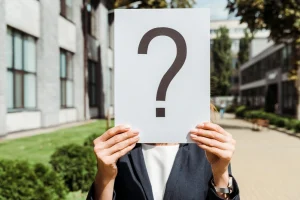Ending cover letters and emails with the right tone—one that is both polite and proactive—can be a struggle for most professionals. You might struggle to rephrase the closing statement, “looking forward to hearing from you,” in a way that expresses enthusiasm while respecting the employer’s time. This closing is a crucial element of your career documents, influencing a recruiter’s lasting impression, especially when following up after submitting a resume or completing an interview.
While the phrase “looking forward to hearing from you” remains popular, its impact often varies based on context, tone, and audience. This comprehensive guide explains the correct and strategic ways to employ it across applications, follow-ups, and networking—ensuring your messages resonate with modern business etiquette and inspire meaningful responses.

The Meaning Behind “Looking Forward to Hearing From You”
The phrase “looking forward to hearing from you” conveys anticipation, courtesy, and confidence. Typically used at the end of professional correspondence, it indicates interest in continuing communication the dialogue or receiving a response. In a job search, this phrasing signals persistence and enthusiasm without veering into impatience or entitlement. The key lies in subtlety: employers value assertiveness balanced with professionalism.
Grammatically, this phrase functions as a present participle clause expressing a future expectation. It implies readiness for a forthcoming reply and reinforces your engagement in the conversation. However, variations in phrasing can shift meaning significantly. For instance, saying “I’m looking forward to hearing from you soon” infuses warmth and energy, while “Looking forward to hearing from you” remains neutral and formal—ideal for written communication in professional contexts.
Business English etiquette guidelines note that effective closings can influence email response rates. Recruiters receiving a bulk of messages daily, subconsciously register the courtesy embedded in your final line. Precise communication helps you appear capable and respectful, anchoring the reader’s attention while leaving the door open for timely engagement.

When to Use “Looking Forward to Hearing From You” in Job Search Communication
Applying the phrase strategically depends on timing and relationship dynamics. As a job seeker, you interact with hiring professionals through multiple stages—application submission, interview scheduling, follow-up letters, and networking outreach. Each situation demands slight tonal adjustments to ensure your message sounds genuine yet confident.
1. Cover Letters
End your cover letter with “I look forward to hearing from you regarding the next steps.” This communicates your initiative and underscores your readiness for dialogue while encouraging follow-up without pressuring the employer.
2. Post-Application Emails
When awaiting feedback, conclude your follow-up emails with the phrase “I look forward to your response.” This phrasing is concise, confident, and expressively polite—a trifecta for professional correspondence.
3. After Interviews
Reiterate your appreciation while closing with “I look forward to hearing from you.” when submitting post-interview thank you letters. This reinforces your genuine enthusiasm, but ensure you include gratitude first, e.g., “Thank you for the opportunity today. I look forward to hearing from you.”
4. Networking Outreach
In networking scenarios, shift towards variants like “I look forward to staying in touch” to convey relationship-building rather than immediate response expectations.
You can also use this phrase in your LinkedIn profile and correspondence with recruiters or hiring managers after sending a resume. However, placement affects readability; ensure you build rapport with a short, context-supporting sentence before this courteous closing line.
Why “Looking Forward to Hearing From You” Works—Psychologically and Professionally
Beyond etiquette, this closing line relies on communication psychology. The phrase creates what behavioral linguists call a “reciprocal expectancy.” It signals that the sender anticipates further dialogue, triggering the recipient’s instinct to respond. In professional settings, expressing expectation respectfully positions the applicant as proactive rather than passive.
Recruiters assess tone as an indicator of professionalism and personality. Your closing line offers insight into your communication maturity. Overly casual endings such as “Talk soon” or “Can’t wait to hear” can undermine your credibility, whereas “Looking forward to hearing from you” sustains polished consistency throughout your correspondence. Well-crafted messages mirror the employer’s communication standards, promoting cultural alignment.
Another reason this phrase proves effective is its emotional neutrality. It expresses anticipation without applying undue pressure. Hiring professionals appreciate candidates who demonstrate confidence while remaining patient during lengthy decision timelines. This phrase strikes a balance that courts responsiveness while mitigating the risk of appearing demanding—a subtle yet powerful advantage in candidate perception.
Professional Alternatives to “Looking Forward to Hearing From You”
While the phrase “looking forward to hearing from you” remains widely accepted, incorporating variety enhances readability and tone. You can diversify your closing language to fit the purpose and hierarchy of your communication. For executive-level communication, precision and gravitas matter more than enthusiasm; for entry-level candidates, approachable professionalism builds warmth.
Here’s a table comparing common alternatives with appropriate use cases.
| Alternative Phrase | Best Use Context |
|---|---|
| “I look forward to your response.” | Formal hiring or HR correspondence following resume submission. |
| “I look forward to discussing this role further.” | Cover letter endings emphasizing next-step readiness. |
| “I appreciate your time and consideration.” | Interview thank-you letters requiring gratitude over anticipation. |
| “I look forward to connecting again soon.” | Networking or soft follow-up messaging post meeting. |
| “I await your reply.” | Reserved for formal corporate or government correspondence. |
| “I hope to hear from you regarding the next steps.” | Gentle encouragement for recruiters reviewing active applicants. |
These variations prevent redundancy across multiple interactions with the same employer. Hiring managers notice phrasing patterns, especially when candidates communicate through multiple channels. Personalized tone adjustments portray adaptability and attention to linguistic detail—qualities and skills that employers value in strong communicators.
Common Mistakes to Avoid When Using the Phrase
Politeness can sometimes backfire if your wording or placement feels forced. Common missteps include overuse, redundancy, or mismatched tone. Recognizing these pitfalls can save you from diminishing an otherwise professional message.
- Overly repetitive correspondence: Using the same closing in every message can come off robotic and insincere. Alternating your phrasing helps maintain authenticity.
- Omitting gratitude: When you skip appreciation and rely solely on the phrase “looking forward to hearing from you, may make your message seem transactional. Pair it with thanks or acknowledgment beforehand.
- Inappropriate tone combinations: Adding urgency, such as “Looking forward to hearing from you very soon,” risks sounding impatient. Make sure your tone aligns with standard corporate etiquette.
- Using contractions incorrectly: While “I’m looking forward” is acceptable in casual correspondence, it’s less suitable for initial outreach to executives or federal employers.
- Misplacement in message flow: Ending paragraphs mid-body rather than after sign-off phrases interrupts structure. The statement should appear immediately above the closing signature.
Proper formatting ensures the phrase “looking forward to hearing from you” reads naturally within a professional rhythm. Avoid turning this courteous expression into filler language. Purposeful placement—connected to a clear call-to-action—enhances professionalism and improves employer engagement rates.
Contextual Tips for Tailoring Closings for Different Applicant Types
Effective closings depend on your career stage, industry, and communication channel. Entry-level candidates generally benefit from demonstrating enthusiasm and humility, while executives or federal applicants must lean on clarity and composure.
Here’s how “looking forward to hearing from you” adapts across different audiences.
- Entry-level professionals: A simple “I look forward to hearing from you” reflects eagerness. Pair it with appreciation—“Thank you for considering my application”—to add professionalism.
- Executives: Senior leaders communicating with boards or recruiters often use “I look forward to our continued discussion” to reflect strategic confidence.
- Federal applicants: U.S. government hiring correspondence typically prefers “I look forward to your response regarding my application,” aligning with federal formality standards.
- Career changers: Transitioning professionals can express optimism with “I look forward to discussing how my transferable skills align with this role,” highlighting adaptability.
- Healthcare professionals: When addressing hiring teams at hospitals or care facilities, combining warmth and professionalism—“I look forward to contributing to your patient-centered mission”—reinforces cultural fit.
Industry language must always guide your word choice. Engineers, educators, and marketers tailor their tone differently. Selecting the appropriate phrasing elevates professionalism and conveys emotional intelligence—a growing criterion among U.S. recruiters according to SHRM research.
Examples of Effective Message Closings
Examples clarify how this phrase integrates into polished correspondence. By tailoring your closing sentence to the purpose of your email, you can increase your response success rate while reaffirming interest without pressure.
- After resume submission:
“Thank you for reviewing my application and considering my qualifications. I look forward to hearing from you.” - After interview completion:
“It was a pleasure discussing the position earlier today. I appreciate your time and insight, and I look forward to hearing from you regarding next steps.” - Networking introduction via email:
“I truly value your perspective on marketing analytics and hope to remain in contact. I look forward to hearing from you.” - Salary negotiation follow-up:
“Please let me know if additional documentation would support your decision. I look forward to hearing from you about the next stage.” - Final thank-you message:
“Thank you again for the opportunity to meet your team. I look forward to hearing from you and contributing my strengths to your continued success.”
Each example maintains professionalism, closes with appreciation, and balances anticipation with respect—three hallmarks of effective job communication in the current ompetitive market environment.
Cultural and Global Variations in the Phrase Usage
Though widely understood in American professional contexts, “looking forward to hearing from you” can carry different tones abroad. In the U.K., it reads slightly more formal and may indicate expectation of a definite response. In Asian business cultures, similar closings often convey respect rather than anticipation. Understanding audience norms prevents tone mismatch, especially for global corporations based in the U.S. but operating cross-culturally.
International job seekers targeting American employers should retain the phrase’s formality while avoiding emotional overtones. Simple structure, clear punctuation, and consistent capitalization embody American business correspondence standards. Equally, spelling conventions—using “favor” rather than “favour,” for example—reinforce localization accuracy for U.S.-based readers.
Adding “Looking Forward to Hearing From You” in Digital Correspondence
Emails remain the dominant medium for professional follow-ups. Formatting, therefore, contributes heavily to readability. Recruiters skim messages quickly, so conciseness paired with structured rhythm matters. Best practices include:
- Separate the closing sentence from the message body with a line break for visual clarity.
- Maintain consistent font size and avoid italics or colored text for the closing line.
- Include a professional signature line below—add your name, contact number, and LinkedIn profile if applicable.
- Limit emojis or exclamation marks that could alter your tone.
- Proofread punctuation; extra commas or ellipses weaken professionalism.
AI-driven communication tools increasingly assess patterns in applicant outreach. Automated parsing systems analyze tone markers, such as closing line,s when evaluating professionalism. Thus, maintaining traditional closings like “looking forward to hearing from you” aligns both with human etiquette and digital screening metrics, supporting comprehensive communication optimization for the present job landscape.
The Power of Personalization in Job Communication
Authenticity separates memorable candidates from generic applicants. Customizing the phrase with a contextual phrase—like the role title or department—makes correspondence stand out. Instead of repeating a generic closing, consider writing, “I look forward to hearing from you regarding the marketing associate opening.” Specificity reinforces attention to detail and demonstrates alignment with the recipient’s focus area.
Modern recruiters appreciate this micro-level personalization because it reflects emotional intelligence and reading comprehension. The closing line then becomes part of a stronger brand voice—one that represents clarity, sincerity, and confidence. Even in brief emails or LinkedIn messages, such phrasing conveys professionalism reflective of strong communication skills—one of the most in-demand soft skills highlighted by the U.S. Bureau of Labor Statistics.

Elevate Every Message Through Professional Polish
Consistent, professional correspondence builds trust throughout the hiring process. Simple details—like phrase choices—signal prudence and readiness. Job seekers who align tone, content, and etiquette position themselves as thoughtful professionals ready for the next step in their careers. Those aiming to further refine resumes and communications often consult professional resume writing help to ensure that every document and email reflects their best possible professionalism.
Frequently Asked Questions
Is “Looking Forward to Hearing From You” too formal for email?
No. It works well for most professional emails. The tone balances formality and friendliness, making it versatile for both cover letters and direct recruiter communications.
What are modern alternatives to this phrase?
Alternatives include “I look forward to your response,” “I appreciate your time and consideration,” and “I look forward to discussing this opportunity further.” These maintain professionalism while diversifying tone.
Can applicants use the phrase in text or LinkedIn messages?
Yes, but tone should match platform style. On LinkedIn, concise versions like “Looking forward to connecting” appear natural without seeming overly formal.
Should it always follow a thank-you sentence?
It is best paired with thankfulness or context, such as “Thank you for your time. I look forward to hearing from you.” This pairing strengthens warmth and sincerity.
Does using this phrase guarantee a reply from employers?
While courteous phrasing increases positive perception, responses depend on hiring timelines and organizational priorities. Still, polite communication supports stronger networking outcomes across hiring stages.








